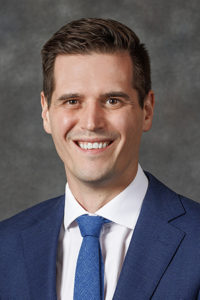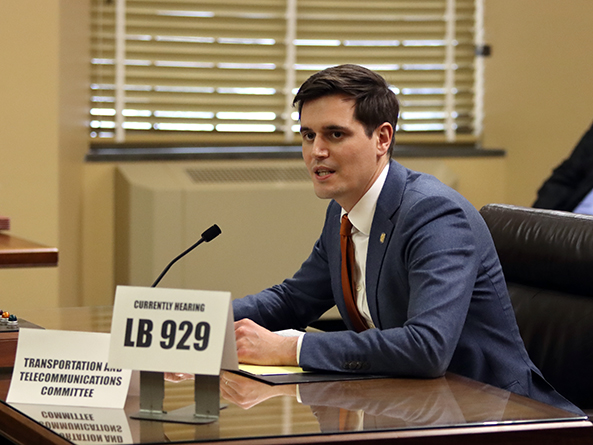Interoperability of 911, mental health hotline discussed
Callers to Nebraska’s 911 service system could be connected to the national suicide prevention and mental health crisis hotline and vice versa under a bill heard Jan. 22 by the Transportation and Telecommunications Committee.

Under LB929, introduced by Omaha Sen. John Fredrickson, the state Department of Health and Human Services would oversee administration of the 988 Suicide and Crisis Lifeline in Nebraska. The service currently connects callers who are experiencing mental-health related distress with mental health care professionals at Boys Town in Omaha.
The bill would require the department to coordinate with the Nebraska Public Service Commission to ensure that 988 has the capability to connect callers to, and receive communications from, the 911 service system. The commission would adopt statewide standards providing for that dual capability so that it would be operational by Jan. 1, 2025.
Despite the existence of 988, Fredrickson said, the 911 system still receives many calls from Nebraskans experiencing mental health crises. He said LB929 would allow 911 dispatchers to transfer those callers to counselors at 988, alleviating stress on law enforcement officers who otherwise would have responded.
“For 988 to fulfill its purpose,” Fredrickson said, “we need the systems to work collaboratively.”
Matthew Harwell, public safety dispatch supervisor at the Lincoln Emergency Communications Center, testified in support of the bill. He said 911 dispatchers are “ill equipped” to help callers experiencing a mental health crisis and that collaborating with the 988 lifeline would empower dispatchers to connect callers to the appropriate services.
“However, this is only possible with the dual capabilities that this bill is putting into place,” Harwell said.
Dan Watermeier gave neutral testimony on behalf of the Public Service Commission. The commission supports establishing standards coordinating the 911 and 988 systems, he said, although some technical challenges exist.
Current differences between the systems prevent an automatic, direct transfer of callers, Watermeier said, necessitating a “warm transfer” in which the operator of one system brings an operator of the other system on the line before transferring the call.
No one testified in opposition to LB929 and the committee took no immediate action on it.


